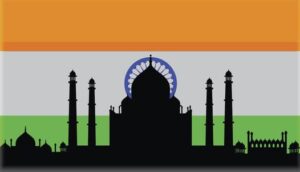India’s Supreme Court is hinting that it will not rule that privacy is a fundamental and absolute right when it delivers its verdict on the matter.
 The case was launched by critics of Aadhaar, India’s pioneering national biometric ID program. With its capability of using fingerprint and iris biometrics to verify citizens’ identities, the program has rapidly extended its reach across Indian society, with the central government seeking to tie it to things like social subsidies and even tax filings. Opponents see the program as a violation of citizens’ privacy, and have brought the case to the Supreme Court, which has held hearings on the matter for the past two weeks.
The case was launched by critics of Aadhaar, India’s pioneering national biometric ID program. With its capability of using fingerprint and iris biometrics to verify citizens’ identities, the program has rapidly extended its reach across Indian society, with the central government seeking to tie it to things like social subsidies and even tax filings. Opponents see the program as a violation of citizens’ privacy, and have brought the case to the Supreme Court, which has held hearings on the matter for the past two weeks.
The court’s nine-judge bench has now indicated that it will deliver a ruling on or before August 27th, and has issued some preliminary statements. Acknowledging that the law must “maintain the core of privacy”, the bench also stated, “We are fighting a losing battle of privacy,” and put forward a tiered approach to the issue dividing privacy into “intimate”, “private”, and “public” realms, with the last concerning situations in which individuals willingly give up some aspect of their privacy, such as letting a smartphone app track their location. The tiers would be subject to varying degrees of government intervention, with the “public” zone admitting the least.
Justice D.Y. Chandrachud went a step further in addressing the court, explicitly pointing to considerations for the country’s tech sector. “We are a knowledge-based society and privacy cannot be raised to a level where we stifle innovation,” he said.
The statements strongly hint that Aadhaar and its connected services will remain in place and will have room to grow further, though there’s still a chance that a surprise ruling in the other direction could bring much of the infrastructure toppling down.
Sources: The Indian Express, Deccan Herald, The Times of India
–
August 3, 2017 – by Alex Perala


Follow Us